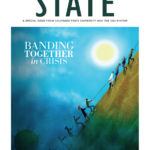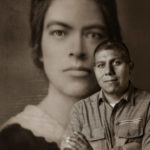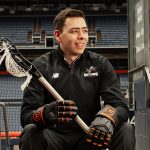A student, wearing a mask in keeping with health policies, attends a socially distanced forestry class at CSU in Fort Collins earlier this month. Photo: John Eisele / Colorado State University
As I write, our CSU System campuses are in the thick of planning for the fall semester, which will have begun right about the time you read this.
Around the country, students are heading back to campuses that will have evolved to meet the public health requirements of COVID-19, but where, essentially, the purpose and character of campus life will be largely unchanged: Faculty will be teaching and conducting research, students will be studying and spending time with one another, and staff will be helping ensure all our operations run smoothly and as safely as we can in a world that always involves a certain amount of risk.
What feels different is what has been experienced by all those privileged to go to college in historically transformative times. We are living through a period that others will talk about and study for generations to come. Times like this open a window to the opportunity for big, groundbreaking changes – changes that don’t happen during periods of normalcy and quiet.
And universities provide an unparalleled setting for people of all ages – but particularly young people – to think critically about the events of their time and engage in necessary conversations and debate around the societal transformations through which they’re living. This type of engagement comes with some angst, some struggle, and considerable reflection, and it is exactly the type of engagement for which universities like CSU exist.
I suspect that this, as much as a desire to get out of their parents’ houses, is why so many of our students have been eager to return to their campuses even during a time of elevated health concerns. They don’t want to sit out this time in our history. They don’t want to watch from the sidelines. They want to be in the heart of things.
We’ve seen this same trend during similar periods of upheaval over the last century. Returning soldiers struggling with post-traumatic stress disorder after World War I still found their way quickly into college classrooms. Outbreaks of typhoid and the Spanish influenza couldn’t keep the next class of students from showing up in the fall. The Greatest Generation literally packed college campuses despite and because the lives they’d envisioned before WWII were no longer there. Students in the 1960s – when the Vietnam War drew deep divides and the fight for civil rights was at its zenith – were deeply engaged in what they saw as one of those moments in time when society shifts.
And like those eras, our time doesn’t come without fear. The potential and likelihood of clusters of COVID-19 cases increases as in-person contact increases. Our faculty and staff are concerned about their own health, as well as that of the students they teach. It is even possible that, by the time this is published, public health guidance will have shifted our approach to on-campus engagement. We are in a time of vast unknowns and figuring it out as we go, given the best science, advice, and planning available.
The students, alumni, faculty, and staff sharing their perspectives in this issue of STATE magazine provide a glimpse into how the world looks from various angles right now. The view is different from every seat in the house, and how we give voice to these different perspectives – how we honor them and also bring them together to learn from and build on one another – is the essence of higher education.
Higher education isn’t comfortable. And yes, a world of masks and thermometers and socially distanced desks makes it less so, physically. But even in the cushiest of environments, advanced learning pushes us in ways we don’t expect or always understand. And independent of what we study, it’s that process – whether online or in person – that truly forms an educated person.
Our world needs educated people more than perhaps ever before. We need scientists, teachers, environmental scholars, businesspeople, medical professionals, people who work in policy and law, artists, poets, caregivers, communicators, and thinkers who can help us navigate through the economic, social, cultural, and health challenges that are immediately before us – and still to come.
That’s why our campuses are open this fall and why we are enormously grateful to the faculty, staff, and state leaders who have enabled this to happen. Best wishes to all as we embark on another unforgettable year.
Tony Frank, D.V.M., Ph.D., is chancellor of the Colorado State University System, which includes Colorado State University, CSU Global, CSU Pueblo, and the emerging Spur campus at the National Western Center in Denver.





